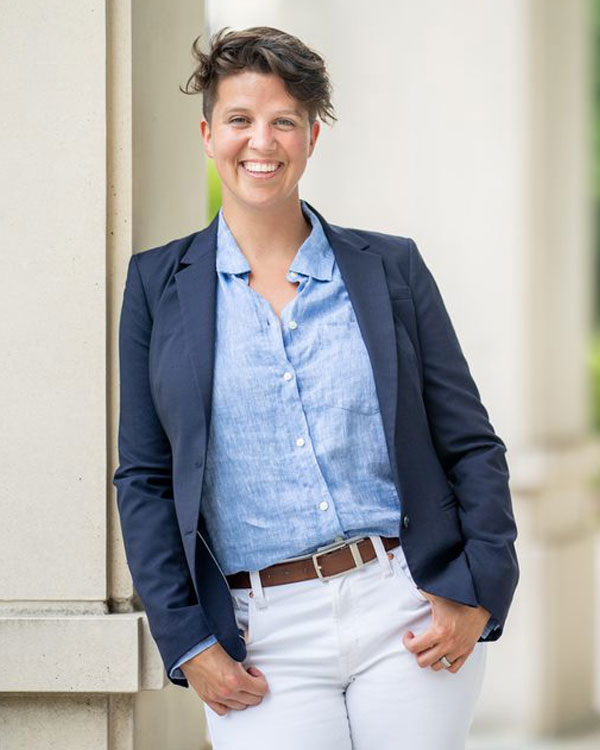
Counselor Education & Student Affairs
Counseling

The majority of professors are doing their own research and will give you those opportunities as well. They will help you to pursue your dream while presenting at conferences and gaining experience. The faculty will help you to go above and beyond.
Mallory Stevens-Carr, CAADC, LPC M.A. in Marriage, Couple, and Family Counseling, ‘17MISSION STATEMENT
The mission of the counseling program is to support the development of ethical and highly skilled counselors who are prepared to serve clients with diverse needs and backgrounds in a variety of settings.
PROGRAM OBJECTIVES
- Students demonstrate their culturally relevant and responsive counseling practice.
- Students understand and ethically utilize developmentally appropriate assessments, appraisal techniques and interventions throughout the counseling process and across life roles and the lifespan.
- Students practice counseling from a posture of cultural humility, with an emphasis on the impact that diversity, equity, and inclusion have on the counseling process.
Outlook
Mental health awareness is a global initiative and essential to the health and wellness of all. Counselors are on the front lines of this awareness and considered essential workers. Due to this increased awareness, counseling professionals are in high demand.
The U.S. Bureau of Labor Statistics predicts much faster than average job growth for mental health counselors over the next decade as improvements in healthcare access allow people to more easily afford counseling services.
When you enroll in one of KU’s CACREP accredited graduate counseling programs, you will:
- Benefit from mentoring relationships with nationally recognized faculty
- Participate in meaningful research and service projects
- Experience a wide range of hands-on counseling activities
- Develop life-long friendships with fellow students.
Our graduates go on to become Licensed Professional Counselors specializing in Addiction, Clinical Mental Health and Marriage, Couple, and Family counseling and become Pennsylvania Certified School Counselors. You can choose to begin professional work directly upon completion or further your studies by pursuing a doctoral degree.
Counseling Programs
There are four specific tracks associated with a master's degree in counseling:
Addiction Counseling - This degree will prepare you to serve in settings such as drug and alcohol outpatient clinics, drug and alcohol rehabilitation facilities, hospitals, college/university settings, and private practice.
Clinical Mental Health Counseling - This degree will prepare you to serve in settings such as community mental health agencies, hospitals, drug and alcohol treatment organizations, college/university settings, or in private practice.
Marriage, Couple and Family Counseling - This degree provides a unique perspective to understand the complex dynamics of family life. With an emphasis in Systems Theory, you will learn how individuals grow and develop in the context of the environment, and how to treat dysfunction of the entire emotional unit. The MCFC curriculum is designed to meet PA State Board educational requirements for the Pennsylvania state Licensed Professional Counselor (LPC) license.
School Counseling Certification/Licensure - School counselors are responsible for supporting the academic, personal, and developmental health of thousands of students across America. The CACREP 60-credit School Certification and Licensure option meets the Pennsylvania Department of Education's requirements to be a PreK-12 Pennsylvania Certified School Counselor and meets the academic requirements for the Pennsylvania state Licensed Professional Counselor (LPC) credential.
This degree will prepare you to be a Pennsylvania Certified School Counselor and also meets the academic requirements for licensure as a Licensed Professional Counselor. These vital roles require patience and excellent listening skills, as you’ll become an important resource to today’s youth and tomorrow’s leaders.
Take the first step
Counseling can be a rewarding career in a growing profession. Choosing to become a professional counselor is a commitment to yourself, to others, and to society. If you’re ready to begin your journey, we invite you to apply through the Office of Graduate Admissions.
Why Choose Kutztown
Emonie Reviere explains why she chose the Clinical Mental Health Program and discusses her academic career at Kutztown.
Student Learning Outcomes





